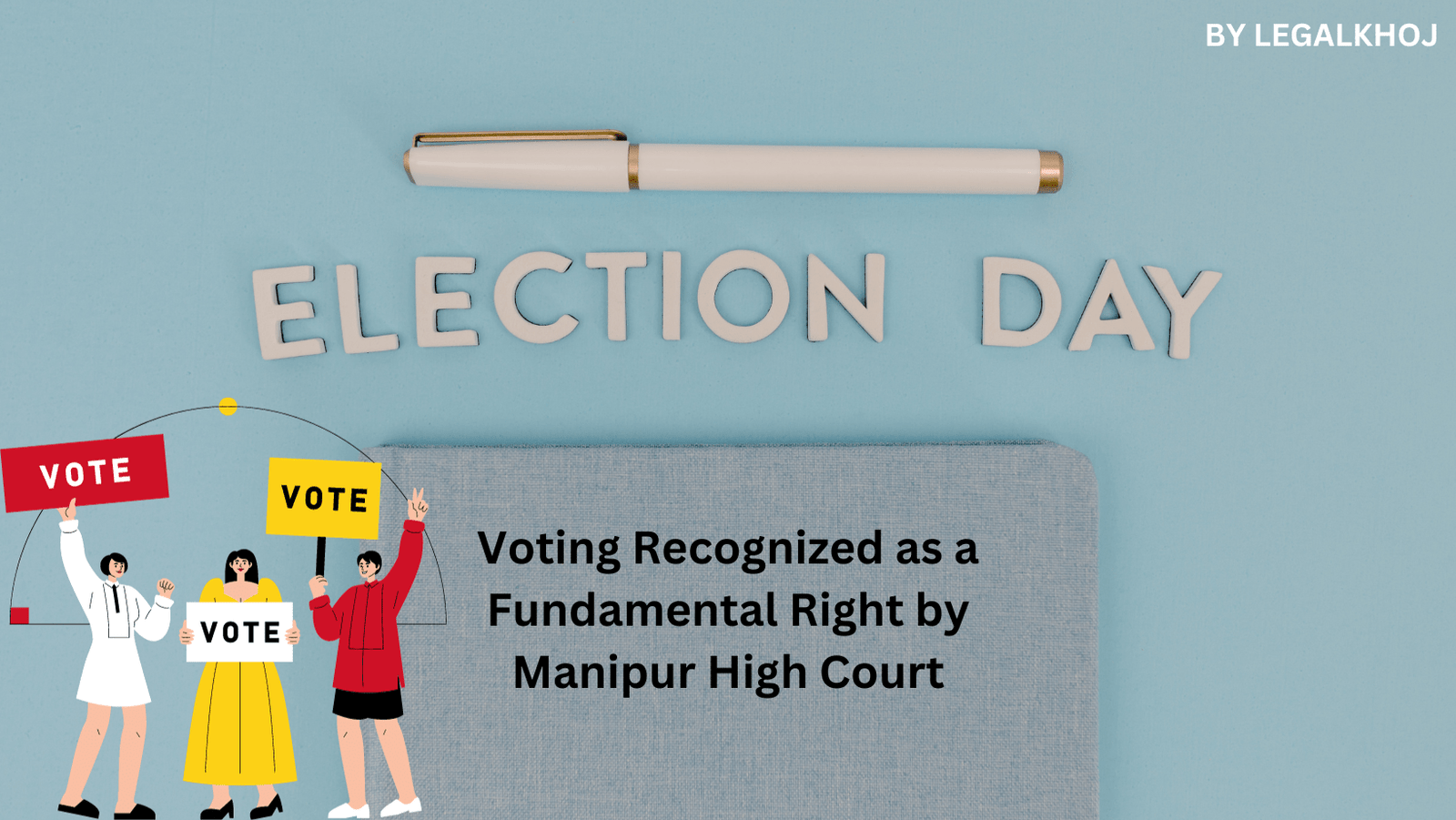The Manipur High Court has delivered a significant judgment that emphasizes the importance of voting as a crucial aspect of the voter’s right to freedom of speech and expression, protected under Article 19(1)(a) of the Indian Constitution.
Justice MV Muralidaran, who made this observation, highlighted the right of Voting to be informed about the criminal antecedents of electoral candidates, a factor considered fundamental for the survival of democracy.
The judgment comes in response to a petition filed by Bharatiya Janata Party (BJP) Member of Legislative Assembly (MLA) Thounaojam Shyamkumar. Shyamkumar sought the dismissal of allegations regarding his election from Andro Assembly Constituency during the 2022 Legislative Assembly Election.
The nature of the right to Voting in India has been a subject of debate since the inception of the Constitution. Historically, voting has not been recognized as a fundamental right but has been treated as a legal or statutory right in various judicial decisions. However, in a Constitution Bench judgment earlier this year, Justice Ajay Rastogi expressed the view that the right to vote is indeed a fundamental right.
He emphasized that the right to Voting is an expression of a citizen’s choice, a fundamental right under Article 19(1)(a) and a reflection of Article 21, which addresses the right to life. However, the majority opinion in this case did not provide a definitive statement on whether the right to Voting is a fundamental right, citing the precedent set by an earlier Constitution Bench.
In the case of Kuldip Nayar and Others v. Union of India and Others, the Supreme Court had rejected the notion that the right to vote is a constitutional right and a facet of the fundamental right under Article 19(1)(a). This decision has influenced subsequent rulings.
Despite these debates, the Manipur High Court’s recent judgment reinforces the idea that voting is an integral part of the right to freedom of speech and expression, emphasizing the voter’s right to know about the criminal background of electoral candidates. Justice Muralidaran underscored the importance of this knowledge in the context of choosing lawmakers and maintaining the integrity of democracy. The Court reasoned that voters should have the opportunity to evaluate candidates’ antecedents and make informed choices. Notably, the Court stated that the right to vote encompasses the idea of “voter speaks out or expresses by casting a vote.”
The case in question was filed by Shyamkumar’s rival candidate Lourembam Sanjoy Singh, who contested Shyamkumar’s election, alleging that he had not disclosed information about a pending criminal case against him. Additionally, the petition accused Shyamkumar of making improper declarations concerning his wife’s non-agricultural land.
The Court did not make a definitive decision on these issues but noted that the omission of a pending criminal case in the nomination papers had to be determined during the trial. Likewise, the Court concluded that it could not decide whether Shyamkumar’s alleged false affidavit would amount to a violation of the Representation of the People Act. These issues will be considered during the course of the trial.
In rejecting Shyamkumar’s petitions, the Court confirmed that the election petitions filed against him contained a concise statement of material facts and disclosed a cause of action. The Court recognized the duty of the Courts to examine allegations of corrupt practices, illegalities, and irregularities that could affect the outcome of elections. It stressed that Courts should not be overly technical but should consider the practical implications and ground realities of the allegations.
The Manipur High Court’s judgment underscores the significance of the right to Voting in a democracy, particularly in the context of making informed choices about candidates with criminal antecedents. This decision has the potential to influence the debate on the legal character of the right to vote in India and its essential role in preserving the principles of democracy.
The Supreme Court is set to deliberate on whether the Enforcement Directorate (ED) can seize property acquired before the alleged commission of a scheduled offense









Leave a Reply